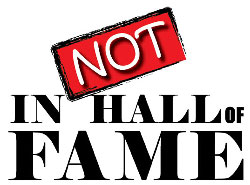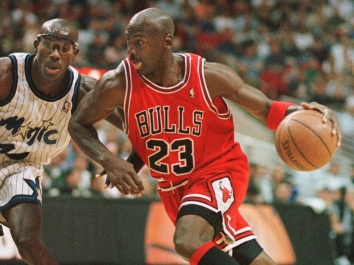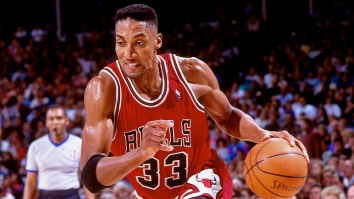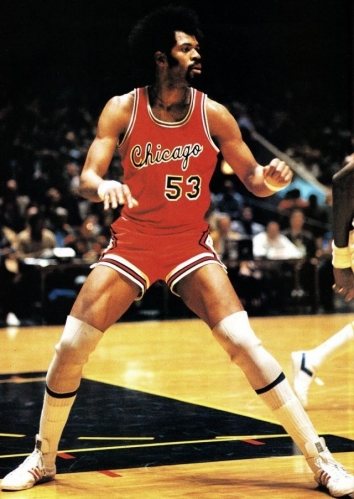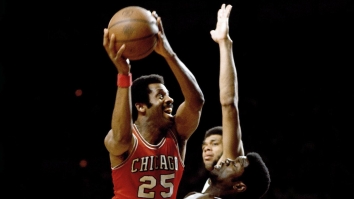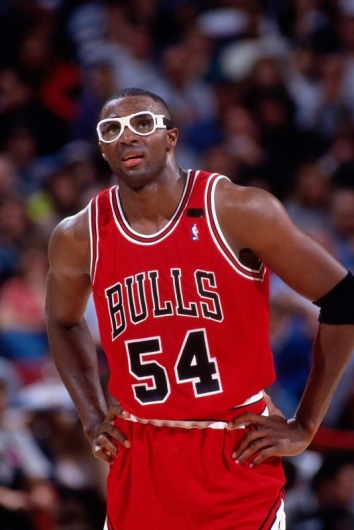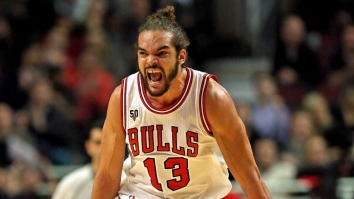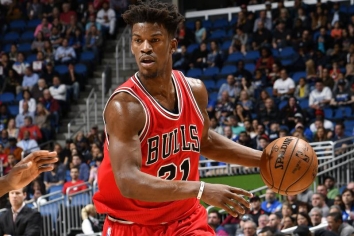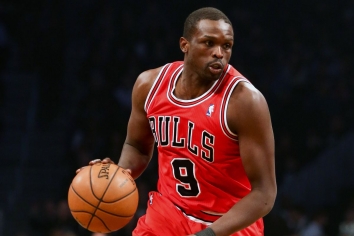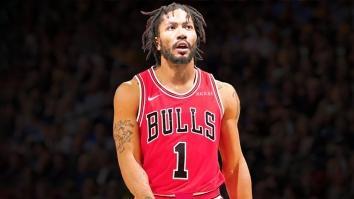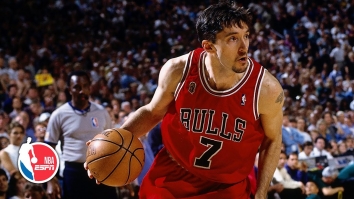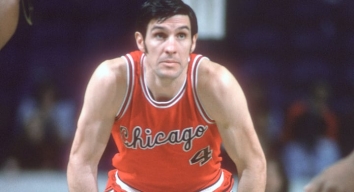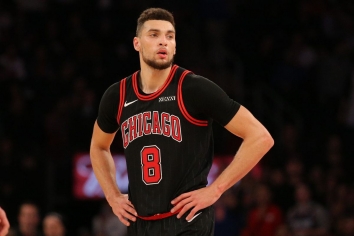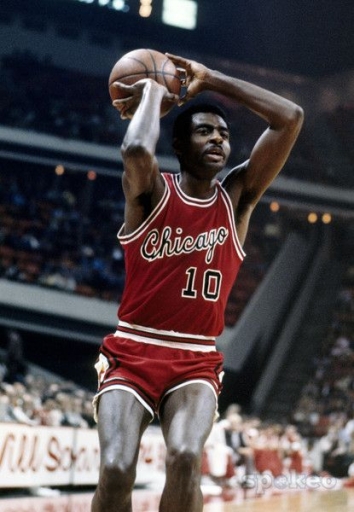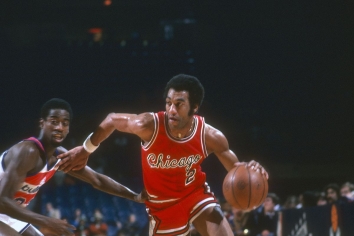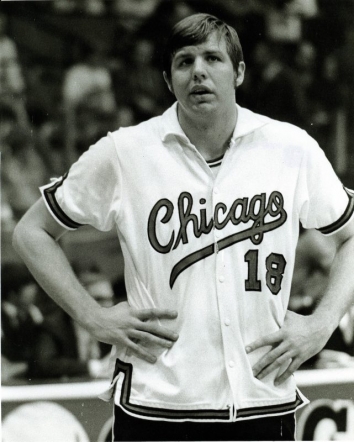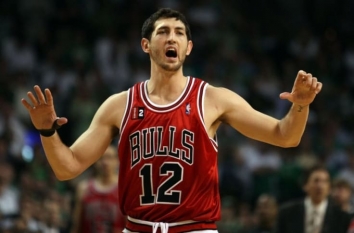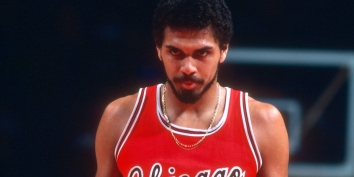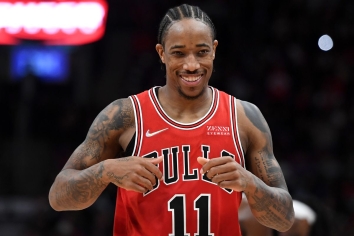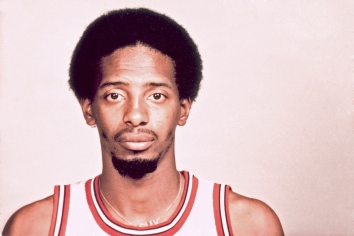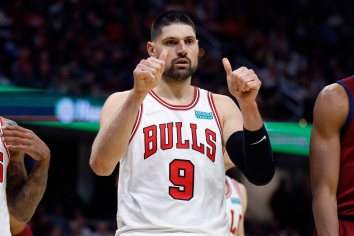Top 50 Chicago Bulls
The Chicago Bulls were founded in 1966, bringing Basketball to the Windy City far later than it should have.
For most fans, the Bulls history really did not begin until they drafted Michael Jordan. The drafting of M.J. changed everything, and he would take them to a pair of "three-peats," which will be forever celebrated, as it should be.
Chicago has not made the Finals since Jordan’s departure.
This list is up to the end of the 2024-25 regular season.
Note: Basketball lists are based on an amalgamation of tenure, traditional statistics, advanced statistics, playoff statistics, and post-season accolades.
It doesn't often happen where we feel we have nothing to say, since what can we tell you that you don't already know?
Choosing Michael Jordan as the greatest Chicago Bull of all time was the easiest decision we have ever made. It was almost as easy to anoint Scottie Pippen as number two.
After the selections of Jordan and Pippen, it does not become as easy to rank the greatest Bulls of all-time. But that makes it all the more fun, doesn't it? The Chicago Bulls took Gilmore with their Seventh Round Pick in 1971, but this was not a slight on Gilmore's skill, but rather that they knew he would sign with the ABA instead. The Center joined the Kentucky Colonels, where he played for five seasons before the…
Walker’s NBA career began in 1962 as a Syracuse National, and when the team moved to Philadelphia and turned into the 76ers, his career grew alongside his team's audience. Walker was a three-time All-Star in Philly and a champion when the team won the title in 1967. But this isn't a list about the greatest Sixers. Walker was traded to the Chicago Bulls in 1969, and he would do more with the rock as a Bull on…
Horace Grant was the 1987 ACC Player of the Year when he played at Clemson, which helped him become a First Round Pick (10th Overall) by the Bulls.
One of the more enduring scenes of the 2007 Draft was the image of Joakim Noah, in a suit that only he could wear, a Bulls cap on his head with a mountain of hair spilling out of it. The son of the former tennis star, Yannick Noah, might have looked a little silly to some "traditional" viewers. What they should have been seeing was an excellent basketball player. Noah was part of a trio with Corey…
Jimmy Butler is an interesting basketball player. He is phenomenal on the court, enigmatic off of it, and when his career ends, we want to see a detailed career retrospective on Butler in the vein of Jordan's "Last Dance." We're serious; we find him fascinating!
From Sudan, raised in England, and schooled at Duke, Luol Deng was a top-ten pick by the Phoenix Suns, who, as part of a pre-arranged draft day agreement, entered the National Basketball Association with the Chicago Bulls. Like most high picks, Deng showed gradual improvement, built on his good 11.7 PPG rookie year, and would have four years as a Bull, averaging at least 17 Points and 6 Rebounds per Game. Calling Deng a superstar might…
When we began this, we thought Derrick Rose would be ranked a little higher, but here we have an MVP who was never the same after a torn ACL. Rose’s career met early expectations. Drafted First Overall in 2008 after a season in Memphis, Rose won the NBA Rookie of the Year with a 16.8 Point and 6.3 Assist per Game year. The Point Guard was an All-Star the following year, as he cracked the 20 PPG…
Toni Kukoc was a superstar in Europe in 1990, playing for Jugoplastika in Croatia and winning the EuroLeague Final Four MVP award after leading his team to the EuroLeague Title. Despite those accomplishments, Chicago fans scratched their heads when the Bulls used their Second Round Pick to take him. Two EuroLeague Titles later (the second one being with Treviso of the Italian League), Kukoc was ready to join the Bulls. Kukoc was immediately popular with Chicago fans,…
A two-time ICC (Indiana Collegiate Conference) Player of the Year when he was an Evansville Purple Ace, Jerry Sloan's professional career began with the Baltimore Bullets, but would only last there one year. This was not due to a lack of skill, but rather because the Chicago Bulls were formed, and Sloan was taken in the 1966 Expansion Draft.
Arriving as part of a blockbuster trade that sent Jimmy Butler to Minnesota, Zack LaVine became a scoring star in Chicago, though many basketball pundits believed that would transpire.
Bob Love played his college ball at Southern, and he did well enough for the Cincinnati Royals to get drafted in the Fourth Round in 1965. Love didn't make the team, but after a year in the Eastern Basketball League (where he was the MVP), he tried again to make the Royals, and he made the roster.
Norm Van Lier played at Saint Francis, and though it was a small school, the Chicago Bulls took him in the Third Round in 1969. So, this is where run in Chicago started, right? No.
Tom Boerwinkle had a good college career with the Tennessee Volunteers, where he helped them win the SEC in 1967, and the big man landed with the Bulls as the No 4. Pick in the 1968 Draft. This would be the only team that Boerwinkle ever played for, though it was a decade-long career.
A Third-Team All-American at the University of Kansas, Kirk Hinrich was taken by the Chicago Bulls with the Seventh Overall Pick in the loaded 2003 Class. Hinrich was never a star NBA player, but his workmanlike skills carved out a long career in the Association.
Reggie Theus is arguably the player who put UNLV on the map, as he was the star who took the Runnin' Rebels to their first Final Four. This put Theus on the national radar, and he was the Ninth Overall Pick, taken by the Chicago Bulls in 1978. The Guard was a First Team All-Rookie with 16.3 Points per Game, which was followed by a 20.2 PPG. "Rush Street Reggie" was slightly worse statistically in his third…
We admit it. When DeMar DeRozan joined the Chicago Bulls in 2021 in a sign and trade, we thought he would put up decent numbers but at no point did we think he could be an MVP contender at this stage in his career. But that is what he did! DeRozan shocked the Windy City with what was arguably his best year in Basketball, earning Second Team All-NBA accolades and a fifth trip to the All-Star Game,…
Mickey Johnson was a Fourth Round Pick by Portland in 1974, but he was traded for a future Third Round Pick to Chicago before he played for them.
Nikola Vucevic starred for the hapless Orlando Magic for years before they traded him in the middle of the 2020/21 Season to the Chicago Bulls, and though he has not seen much playoff success there either, it is a much better situation. Vucevic played in the 2021 All-Star Game two weeks before he was dealt to Orlando, and with the Bulls, he had Zach LaVine and later DeMar DeRozan, so he didn't have to carry…
